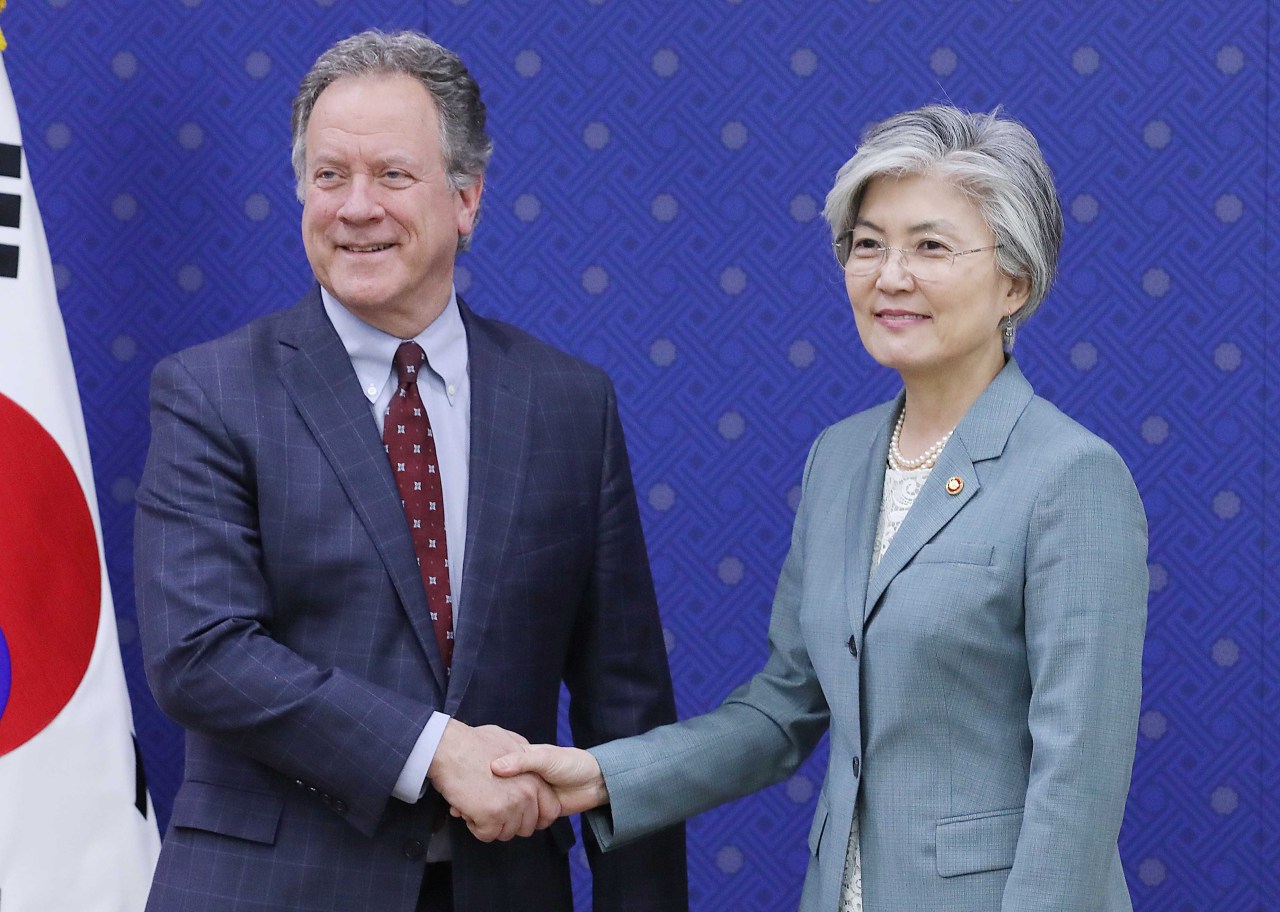The head of a U.N. food agency said Monday he is “very concerned” about food shortages in North Korea and called for donations to the impoverished communist nation, affirming that the agency will try to make sure aid will reach those intended.
World Food Programme Executive Director David Beasley made the remarks to reporters after he met with South Korean Unification Minister Kim Yeon-chul to discuss North Korea’s worsening food situation.
“We are very concerned about the situation there and we are hopeful that we can come up with some solutions,” Beasley said.
“Whatever we do, we will assure the donors that the food or any assistance will meet their objectives. We‘ll have monitoring systems in place.”
 |
(Yonhap) |
Their meeting came as the South Korean government is formulating plans to provide food aid to the North in the hope of helping alleviate the situation there and to help keep the stalled negotiating process alive, despite the North’s recent projectile launches.
Last month, the WFP and the Food and Agriculture Organization said in a joint report based on their field inspection that North Korea‘s crop output last year hit the lowest level since 2008, adding that an estimated 10 million people in North Korea, 40 percent of its population, are in urgent need of food.
They urged U.N. member states, including South Korea, to contribute to their efforts to help North Korea with its worsening food shortfalls.
“We are assessing the situation. Obviously everybody knows there was bad weather, droughts, flooding. There was bad snow, there was a lot of different conditions impacting the food security situation in North Korea,” Beasley said. “The report speaks for itself. So we have very serious concerns.”
The unification ministry said that, during the meeting, the two shared the view that humanitarian assistance projects should be separated from politics, adding that both agreed to continue close consultation with regard to issues related to humanitarian assistance for North Korea.
Beasley later met Foreign Minister Kang Kyung-wha to share his detailed assessment of the same matters.
Asked by a reporter after the meeting if any progress was made at the talks, Beasley said he had a frank conversation and stressed that it’s now up to the South Korean government to make a decision.
“Every country has to make a decision and we‘ll leave that up to the leaders of this country. ... I know in my heart, (South Korea) is very concerned about these innocent people,” he told reporters.
Beasley also highlighted that his agency, well aware of “pitfalls,” will put the monitoring system in place to assure that the assistance is delivered to the intended beneficiaries.
U.S. President Donald Trump has expressed support for Seoul’s efforts to send aid to the North.
Seoul has said all options are on the table in providing food aid to the North, including provisions directly by the government and through international agencies.
President Moon Jae-in earlier said he wants to go ahead with the aid plans despite the North‘s recent firings of missiles, adding that his administration will push for it in consideration of public opinions.
In a related move, the unification minister plans to meet leaders from civic groups and religious organizations on Tuesday as part of efforts to listen to their opinions with regard to food assistance to the North, according to his office.
South Korea last provided food assistance to North Korea in 2010 to help it cope with flood damage. Seoul delivered 5,000 tons of rice to Pyongyang at the time.
In 2017, the government unveiled a plan to provide US$8 million worth of assistance to North Korea through international aid agencies, including the WFP, but it has not been carried out amid little progress in denuclearization talks between Pyongyang and Washington.
During Monday’s meeting with the WFP chief, the unification minister pledged to “actively” consider providing the promised aid for the WFP‘s project aimed especially at helping pregnant North Korean women and children in need, his office said.
On Sunday, North Korean state TV highlighted looming concerns about drought, reporting that the average precipitation across the country in the January-May period is expected to be the lowest since it began compiling relevant data.
A separate North Korean propaganda outlet, however, lashed out at Seoul for talking about “humanitarian” projects while putting off the implementation of summit deals between the two sides in an apparent unfavorable reaction to Seoul’s possible food assistance. (Yonhap)








